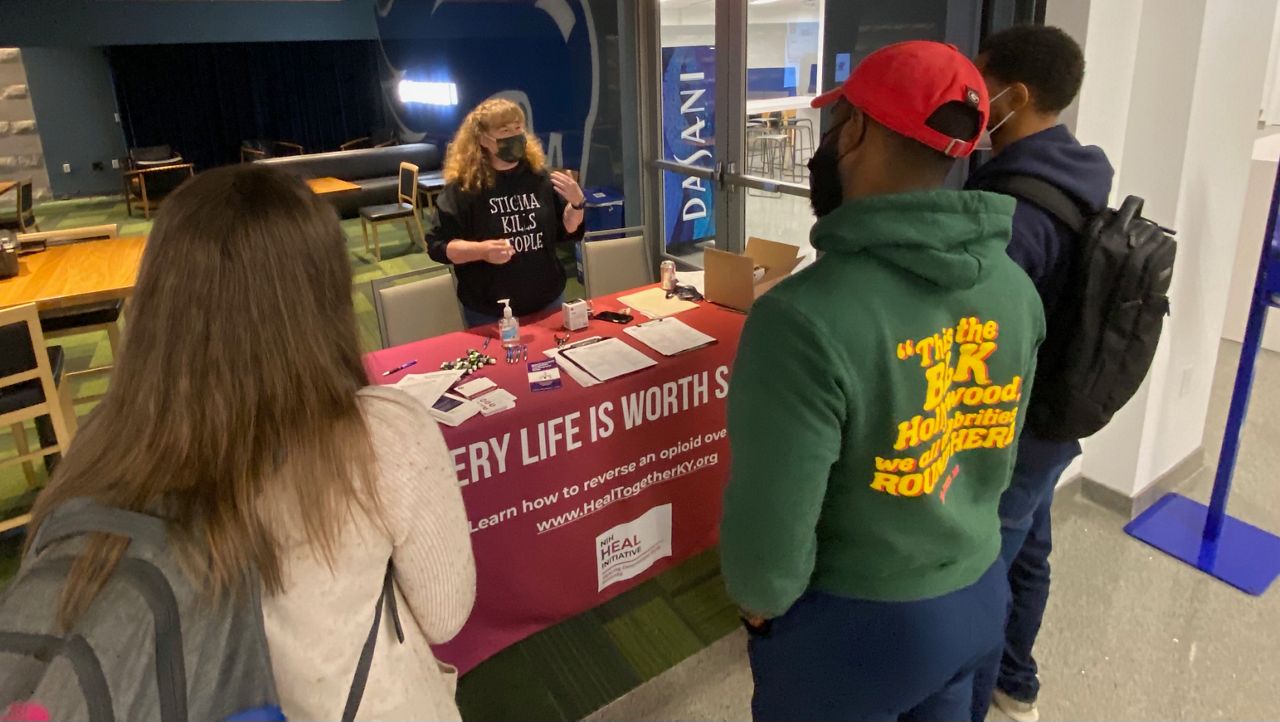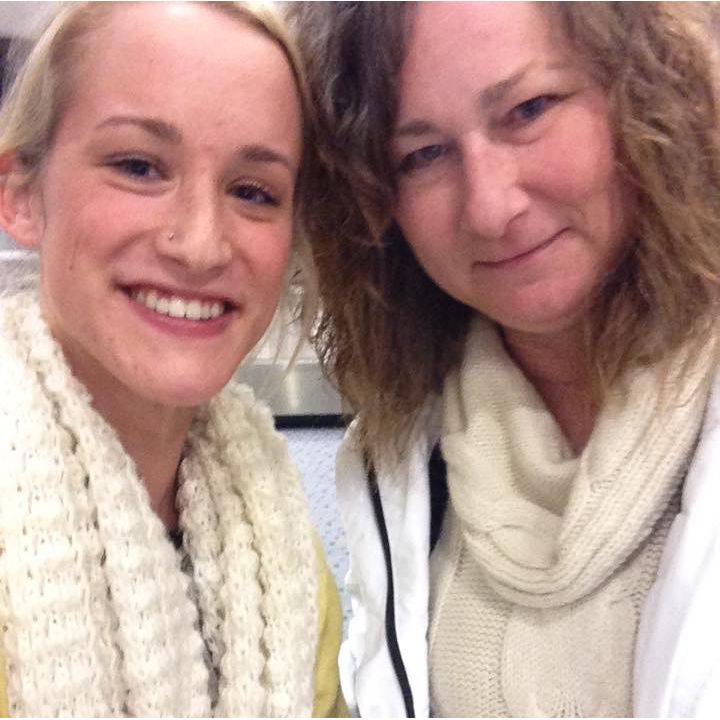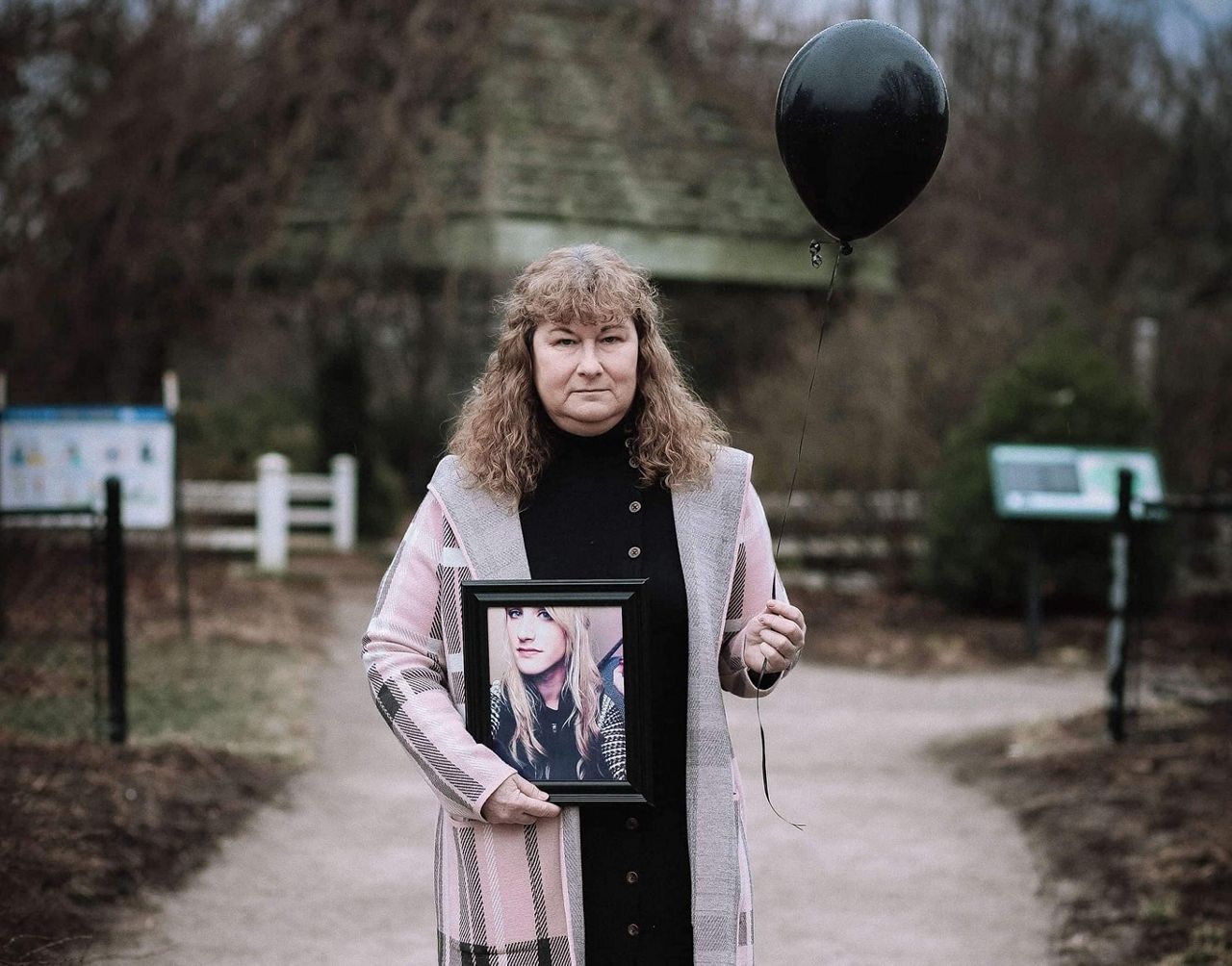LEXINGTON, Ky. — For three hours one night at the University of Kentucky, Helen Latta greeted dozens of students, eager to learn how to administer the overdose-reversing drug Narcan.
Wearing a sweatshirt that reads "Stigma Kills People," Latta stood behind a table with a tablecloth printed with the words, "Every Life is Worth Saving."
"Narcan is used to reverse opioid overdoses," she told a group, as she began the training.
Latta walked students through the steps they would take if they encountered someone who appeared to have suffered an overdose, including calling 911 and administering a dose of Narcan through a nostril.
“You’re going to wait about three minutes to see if they come to or if they react," Latta said. "If they don’t, then you’re going to use the second dose.”

Latta is the prevention specialist with the HEALing Communities Study for Fayette County at the University of Kentucky.
Her role is community outreach, providing training and free boxes of Narcan at events around the county.
For Latta, every box she hands out has the potential of giving someone a second chance — one her daughter, Melissa Hadlock, didn't get.

"It was four years ago," she told some of the students gathered in the student center around her table. "She was 24 years old. She was really smart and beautiful."
Melissa was an EMT, working to get a degree in neuroscience, but she battled an addiction with heroin, said Latta.
In 2017, one month after completing her third treatment program, she overdosed on fentanyl.
"The person that she was with did not have Narcan," Latta told Spectrum News 1. "Of course, as a parent who loses a child, that’s absolutely devastating and you never recover from it, but it became kind of a driving passion for me, to educate people.”
That night at UK, Latta trained and gave boxes of Narcan to 57 people, including David Robinson, a graduate student who works with men in recovery.
"After leaving from this, I do feel like I’ll be a good Samaritan by keeping it with me," he said.
Latta is working on a master’s degree in substance use counseling.

She said her work never gets easier, but it does bring her comfort to help save lives and hopefully spare someone else the pain she carries.
"If she had had the Narcan, my daughter would probably still be alive today and so again, that’s one of the reasons I want to get everybody to carry it,” said Latta.
The HEALing Communities Study is a grant-funded study involving 16 counties, working to reduce opioid overdose deaths by 40%.



